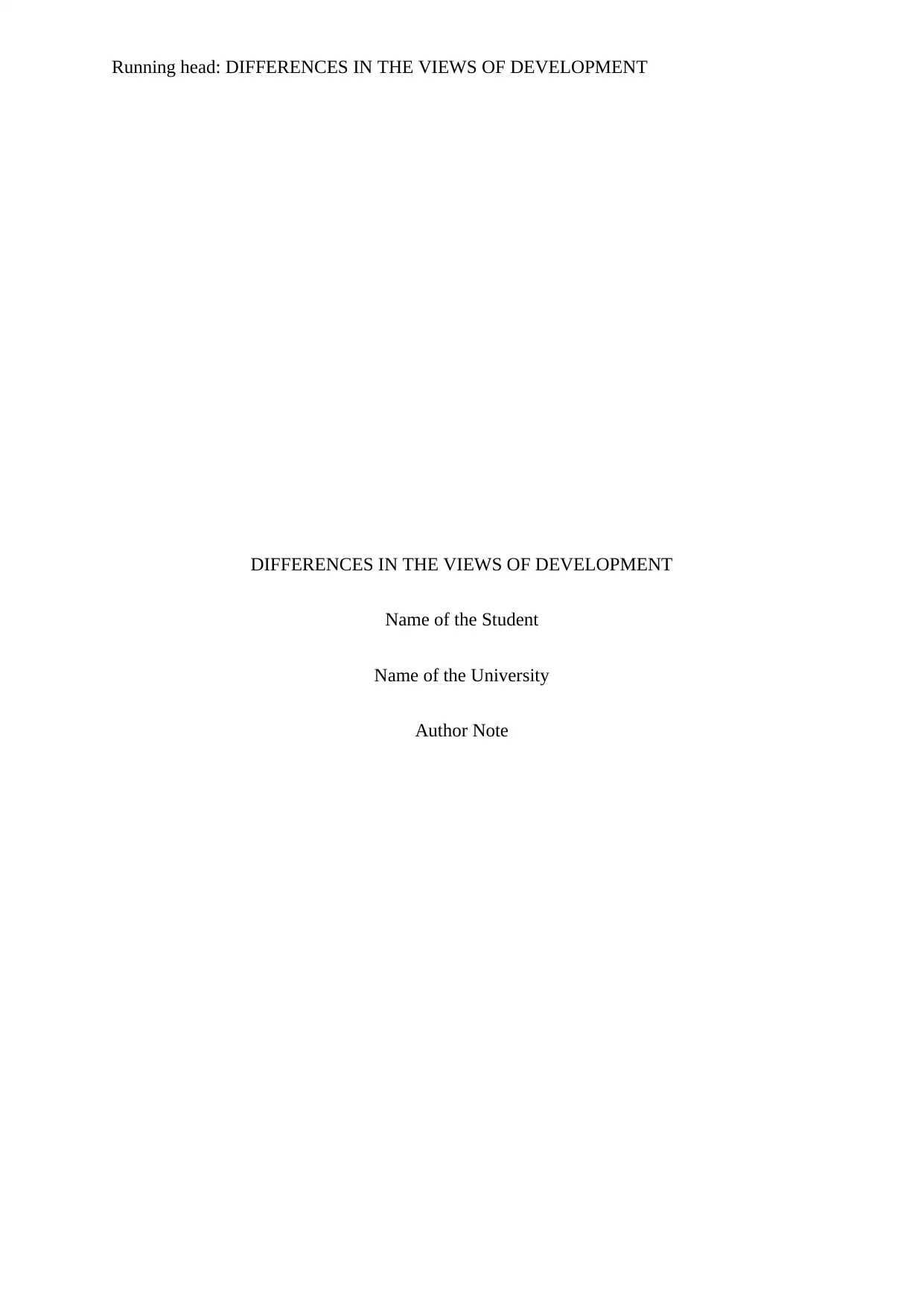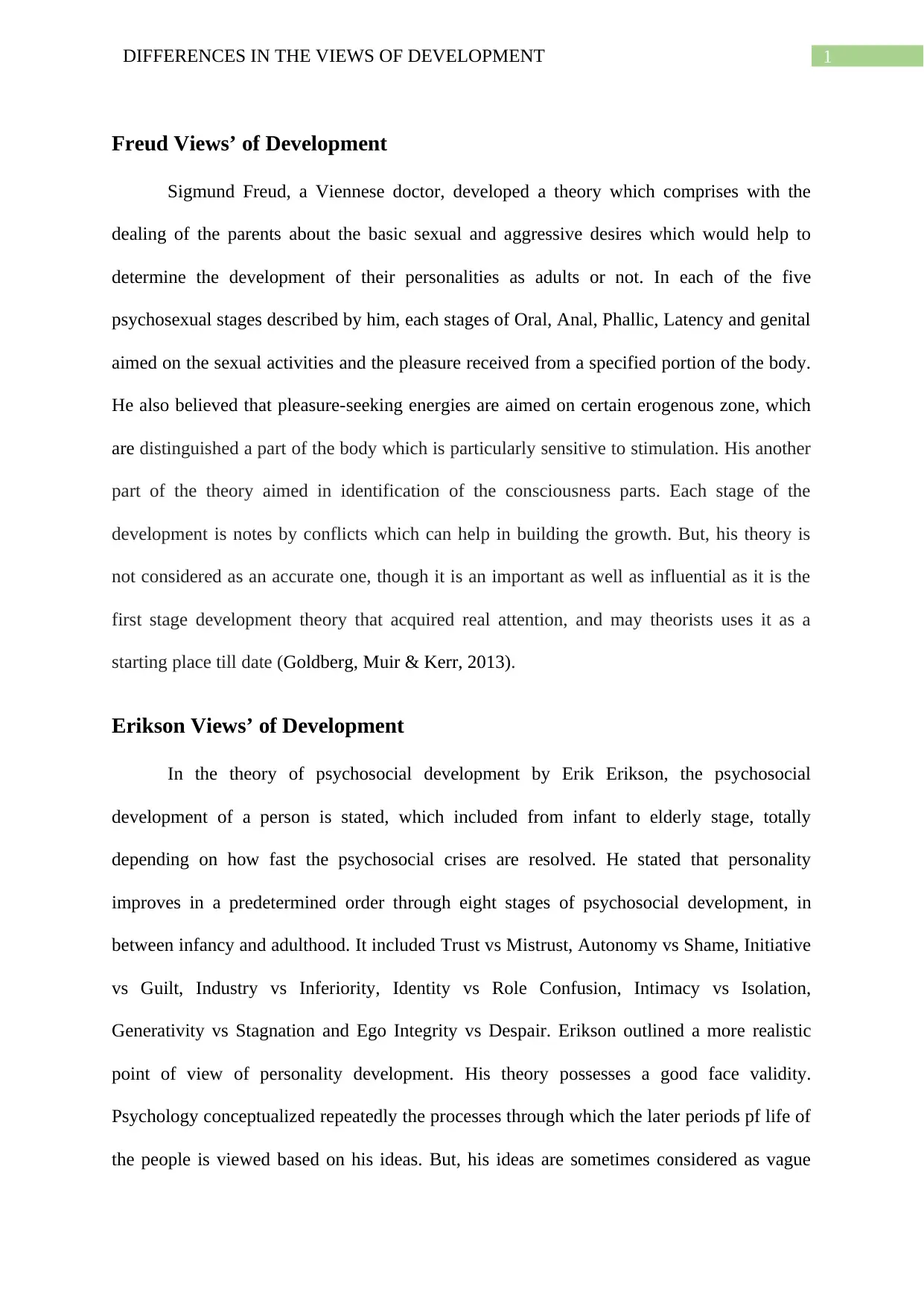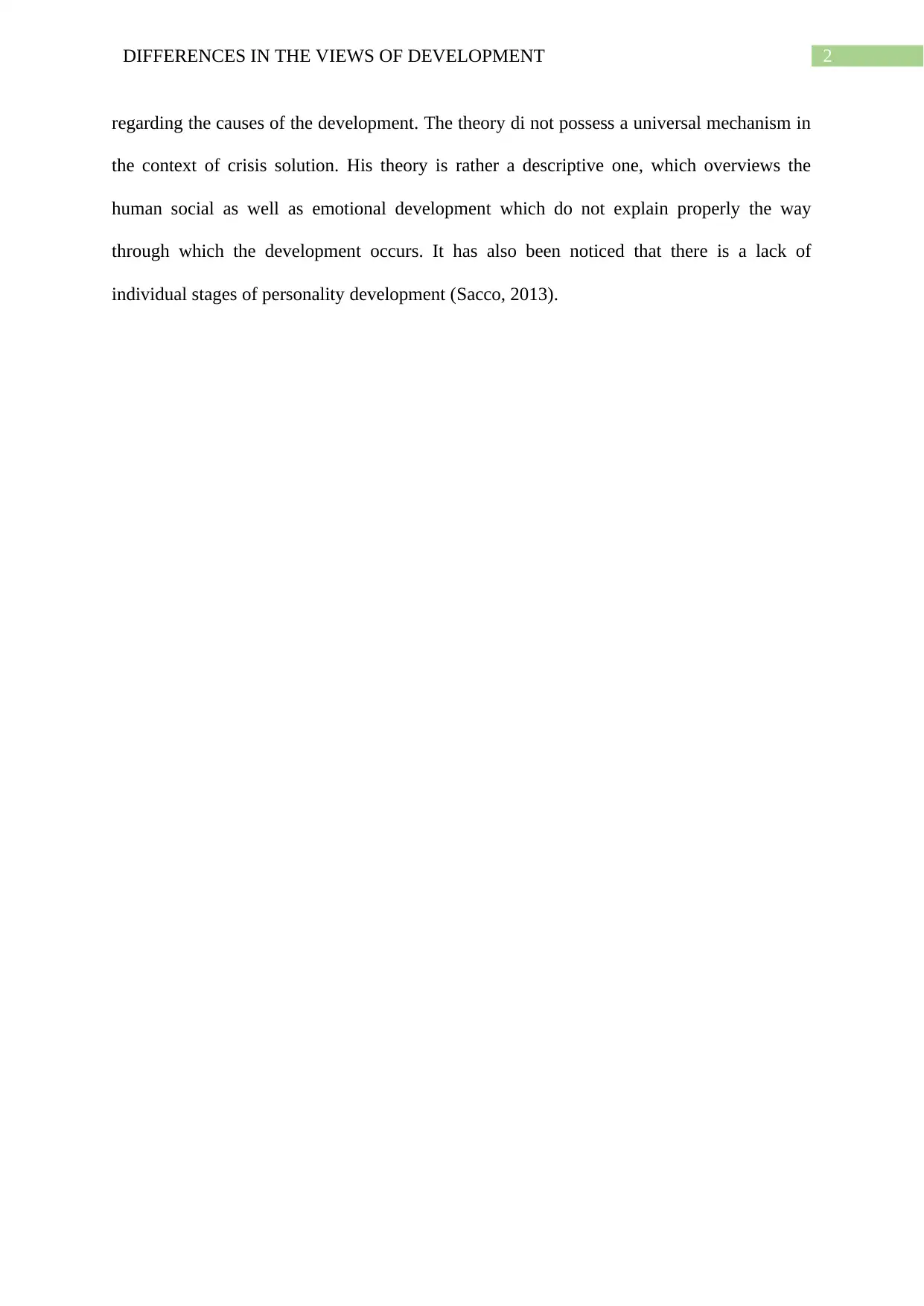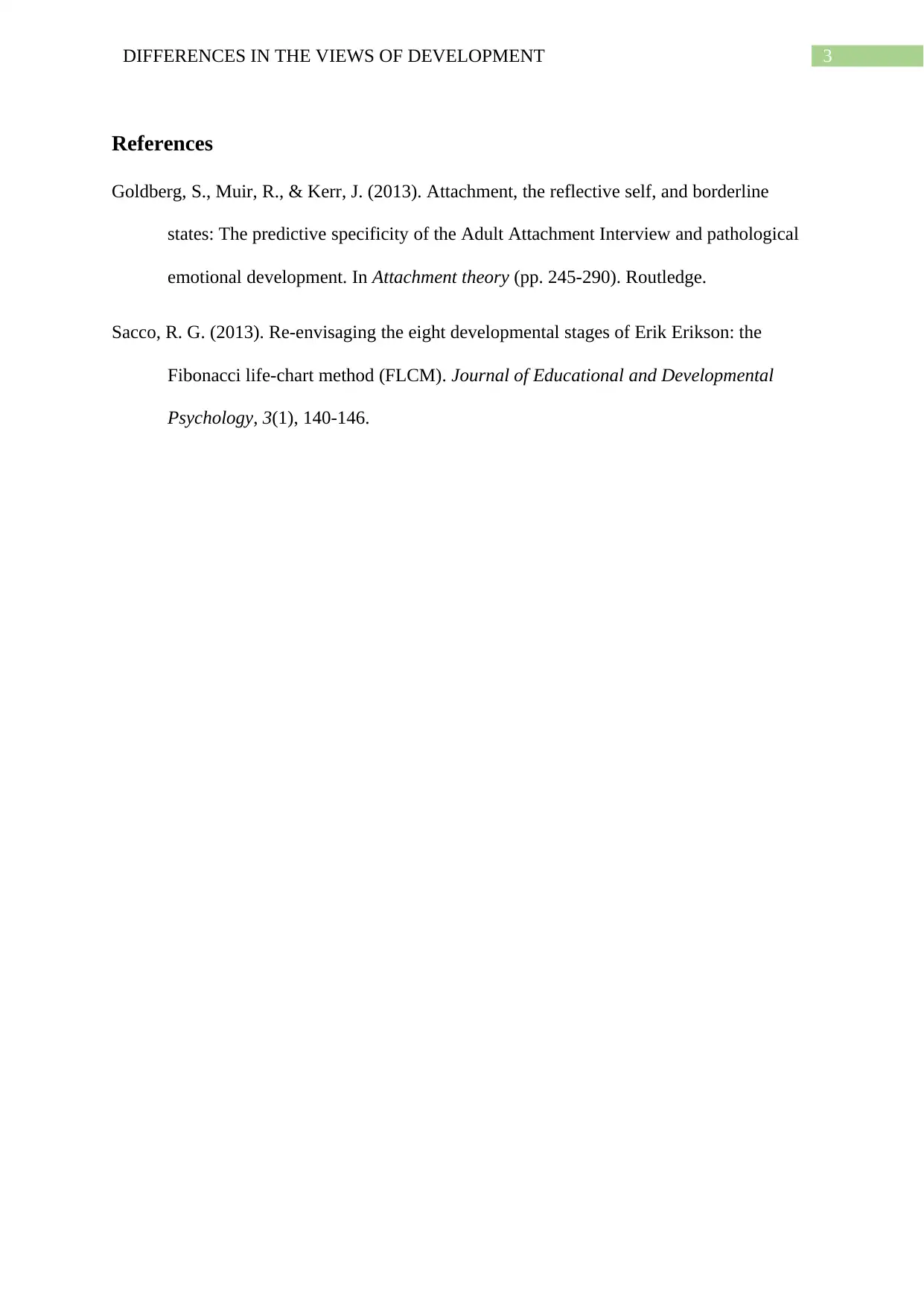Freud vs. Erikson: A Critical Analysis of Development Perspectives
VerifiedAdded on 2023/03/21
|4
|563
|21
Essay
AI Summary
This essay provides a comparative analysis of Sigmund Freud's and Erik Erikson's theories of development. Freud's theory focuses on psychosexual stages and the impact of early childhood experiences on adult personality, emphasizing erogenous zones and the resolution of conflicts at each stage. While influential, Freud's theory is criticized for its lack of empirical support. Erikson's theory of psychosocial development outlines eight stages from infancy to old age, each characterized by a psychosocial crisis that shapes personality. Erikson's approach offers a more comprehensive view of development across the lifespan but is sometimes considered vague regarding the mechanisms of development. The essay concludes by highlighting the strengths and weaknesses of both theories in understanding human development. Desklib provides access to similar essays and study tools for students.
1 out of 4











![[object Object]](/_next/static/media/star-bottom.7253800d.svg)